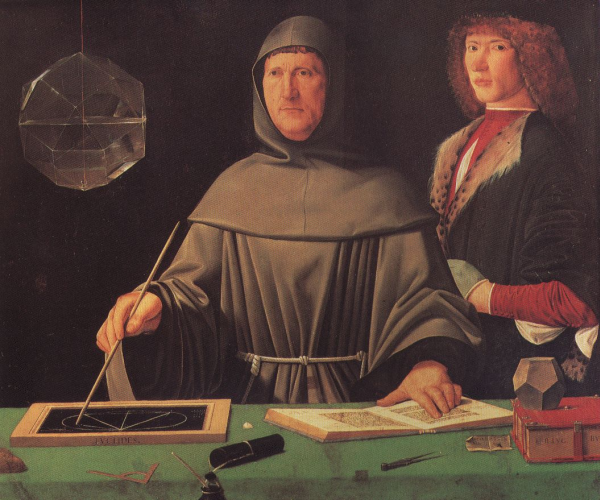
Good maths books are simultaneously plentiful and rare. While there are a few classics almost everyone knows about and has copies of (Gardner, Hardy, etc.), the trade in lesser-known maths books is considerably less well-organised. Very few bookshops have well-stocked maths sections, and insipid pop maths books dominate. Unless you hear about a good maths book through word of mouth, you’ll often only encounter it once it’s ended up in a second-hand bookshop, usually a refugee from an emptied maths department library.
But books, more than anything else, are where the beauty of maths really manifests itself. It’s where ideas are presented most clearly, after they’ve had time to percolate through a few more brains. We talked to David Singmaster, professor of maths and metagrobologist, about his favourite maths books.
Here are some links to the things we referred to in the podcast, along with some bonus extras:
- The Slocum Puzzle Collection at Indiana University
- Luca Pacioli on Wikipedia
- Scans of the manuscript of De Viribus Quantitatis
- The Conjuring Arts Research Center’s edition of De Viribus Quantitatis
- The one pile game (Static Nim)
- Nim on Wikipedia
- Nimber on Wikipedia
- Nim Multiplication by Lenstra (link goes to a big PDF)
- The game that wasn’t solved was Sprouts, which is analysed using nimbers in Computer analysis of Sprouts with nimbers by Lemoine and Viennot
- Winning Ways for your Mathematical Plays by Berlekamp, Conway and Guy
- Melancholia by Albrecht Dürer at the British Museum (it’s also the icon for our Arty Maths section over there on the right!)
- The Blind Abbess and her Nuns at The Puzzle Museum
- The vertical-horizontal illusion at Wikipedia
- George Hart’s page on De Divina Proportione (and one on Leonardo da Vinci’s illustrations)
- Scans of De Divina Proportione at archive.org
- The drawings CP was thinking of were from the Codex Guelf, and posted at BibliOdyssey.
- Between 1981 and 1985 David edited and published Cubic Circular. With David’s permission, Jaap Scherphuis has put every issue online.
CP recommends Westwood Books in Sedbergh and Barter Books in Alnwick as sources of unusual second-hand maths books. The chap who runs Westwood is an ex-mathematician and does a good job of saving books being thrown out of university libraries.
Part 2 will appear next week.
Podcast: Play in new window | Download
Subscribe: Apple Podcasts | Google Podcasts | RSS

uhh-ohhh… I wonder if Marcus du Sautoy will be producing a list of insipid popular maths blogs anytime soon ;-)